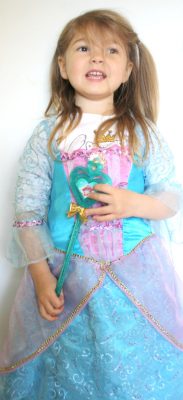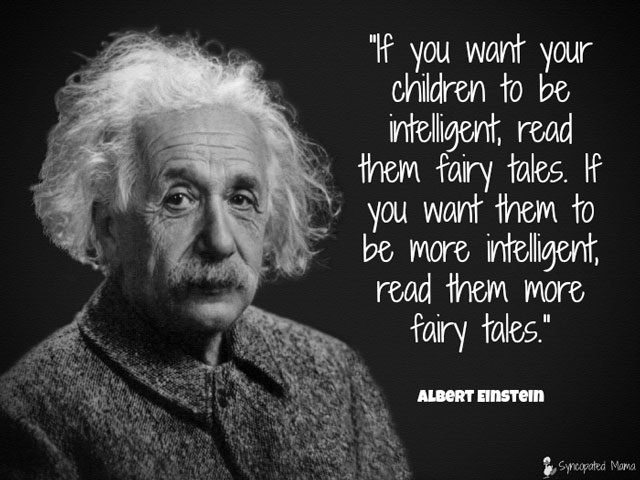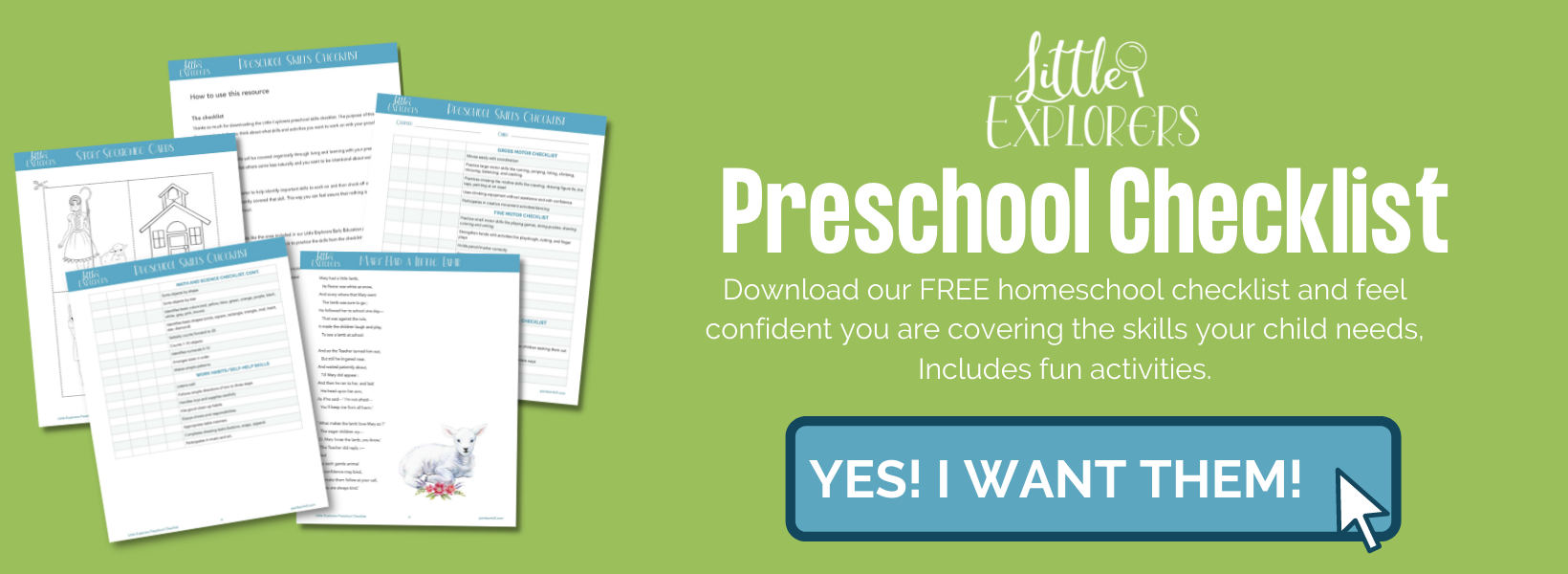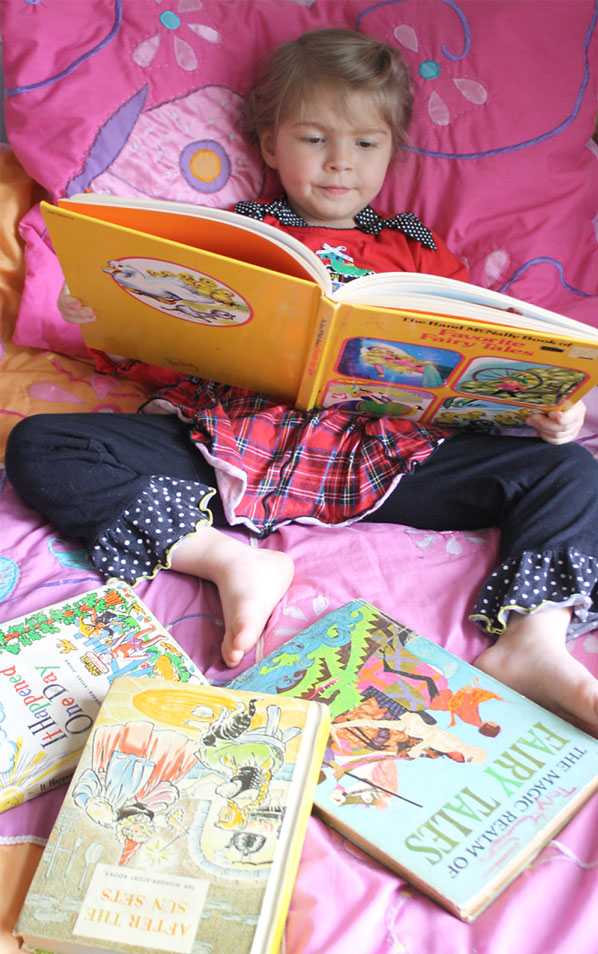
Do you embrace fairy tales at your house, or choose to shy away from these often politically-incorrect stories with your children?
Oh, maybe you’re fine with the Disney-fied versions, but you’re positive the originals would result in a grim future (pun intended) of night terrors for your little sleepyhead.

Whatever your view, you might be surprised to learn just how important fairy tales are to a preschooler’s development!
Some of these ideas will make total sense, but others might shock you – even though the positive effects of fairy tales on youngsters has been proven by psychologists who have studied the topic at length.
As you’ll see, frequent exposure to fairy tales will benefit your child creatively, intelligently, emotionally, and morally:
Creative Development
Imagination: It seems almost silly to mention it, but fairy tales boost a child’s imagination like salt brings out the flavor in a giant pot of gumbo. These fantastical tales are examples of storytelling at its finest and the simple yet mysterious plotlines are not only entertaining but are some of the best tools to teach story to children around!
- Diversity: Even though we think of these tales as a category all to themselves, you’ll find stories which are thoughtful, romantic, or even action-oriented, which means there’s something for everyone!
- Culture: These tales are set in different parts of the world and subtly expose children to many cultures while reading.
- Generational Connection: Just like nursery rhymes (see The Fabulous Benefits Nursery Rhymes Provide Your Child), fairy tales can bridge the generational gap between your kids and their grandparents by providing common stories for them to relate to.
- Dramatic Influence: Fairy tales are some of the best fodder for role-playing, plays, or child-designed puppet shows!
Cognitive Expansion
- Cultural Literacy: As mentioned above, fairy tales are some of the best examples of story around. Exposure to them will help your preschooler extrapolate common themes across everything else they read!
- Critical Thinking: Opportunities abound for practice with critical thinking skills. Since the language of these stories is uncomplicated, it’s often easier for youngsters to comprehend the main points and strategies so often used in literature.
- Vocabulary: You won’t find any of that simplistic “Dick and Jane” language here. These tales don’t shy away from using precise and often figurative language, affording ample occasions to exponentially grow your child’s vocabulary.
Emotional and Psychological Growth
- Problem Solving: Fairy tales are often filled with non-examples for our children to follow (think of the first two brother pigs!), but it is through seeing these characters make poor choices that our little ones learn of better ways to handle problems in life.
- Emotional Resiliency: Fairy tales afford kids the chance to see that bad things happen to everyone, but within a safe (fantastical) This is especially helpful since children aren’t yet able to think abstractly and this detachment from the real world into the realm of fantasy decreases the scariness factor for them.
- Emotional Processing: Because the characters in fairy tales represent and externalize so many of the deep feelings that children have, kids are better able to understand and process them. Kids can deal with tough emotions by freely projecting their own violent feelings onto the evil characters while also relating to the main characters (who are often also children who demonstrate pluck and triumph over evil adults).
- Psychological Stability: Fairy tales speak to children uniquely at each stage of their development. Kids instinctively know these stories aren’t literally true and that they represent inner conflict, which promotes a steadier psyche. The classic happy ending to the story’s existential problem doesn’t hurt, either!
Moral Training
- Absence of Gray: These stories are simple; they’re black and white; they display good versus evil and teach kids right from wrong (through implication) in a manner that is extremely easy to see. Children hear these tales, identify the protagonist, and want to be the hero, not the villain.
- Glimmers of the Gospel: Fairy tales teach lessons (love, honor, sacrifice, hope, courage, perseverance and justice) and, like the parables of Jesus, allow kids to better connect to these concepts through story.
Once upon a time, you might have thought twice about spending a great deal of time reading fairy tales with your preschooler, but hopefully now that you’ve seen all the benefits these stories can provide, you’ll regularly integrate them into your days.
And before you wake one morning, battered and bruised following a night spent on a mile-high stack of mattresses, consider these expert fairy tale tips:
- Spend time reading the same stories over and over. Children will get more and more out of these tales over time.
- Although there are some delightful, illustrated fairy tale books out there, don’t be afraid to read illustration-free versions as well. These stories are so vivid; your child will likely paint a much richer picture in his or her mind to match the text than anything that can be seen on the page.
- Variations are fine, but the original versions of these stories are best. If you find the original to be too gruesome, consider waiting until your child is older to read that particular tale.
- Don’t choose these stories for bedtime. Even if you bypass the possibly gruesome original for a tamer version, the issues dealt with in these stories might cause your little one to have a stressful sleep. Save these tales for daytime!
Finally, hop on over to my neck of the woods to read my Fabulous Fairy Tales post. You’ll find a great list of text comparisons, story collections and overall super selections for your fairy tale library that will surely result in your own happily-ever-after ending!
Quick! Before you go, which fairy tale is your all-time favorite? I’d love to hear!
Bettelheim, Bruno. The Uses of Enchantment: the meaning and importance of fairy tales. New York: Vintage Books, 2010.
Heuscher, Julius. A Psychiatric Study of Myths and Fairy Tales: their origin, meaning, and usefulness. Springfield: Charles C. Thomas, 1974.
- 5 Easy Ways to Incorporate Preschool Math into Your Homeschool Day - September 29, 2022
- Preschool At Home: Calming Your Fears - August 31, 2022
- Homeschooling Your Preschooler: Social-Emotional Learning Guide - July 25, 2022

 Imagination: It seems almost silly to mention it, but fairy tales boost a child’s imagination like salt brings out the flavor in a giant pot of gumbo. These fantastical tales are examples of storytelling at its finest and the simple yet mysterious plotlines are not only entertaining but are some of the best tools to teach story to children around!
Imagination: It seems almost silly to mention it, but fairy tales boost a child’s imagination like salt brings out the flavor in a giant pot of gumbo. These fantastical tales are examples of storytelling at its finest and the simple yet mysterious plotlines are not only entertaining but are some of the best tools to teach story to children around!


